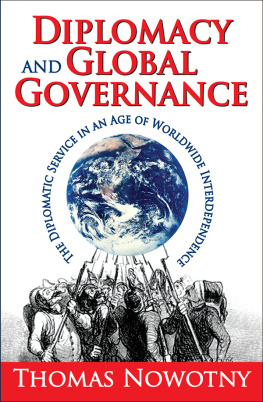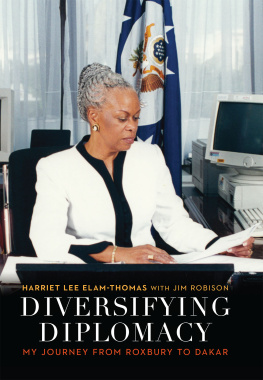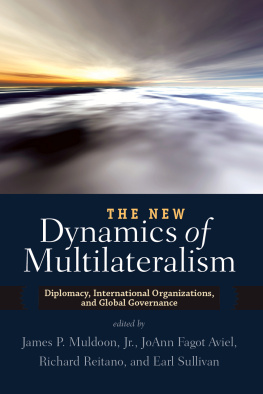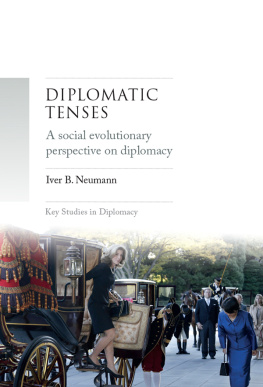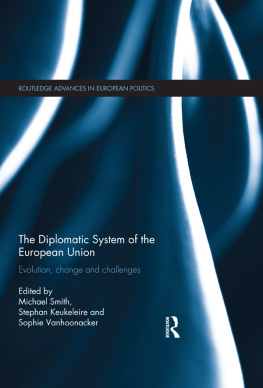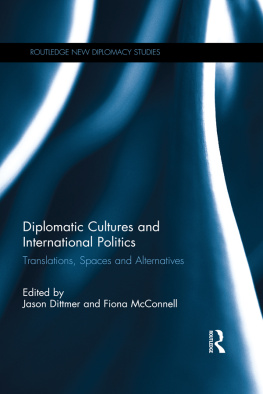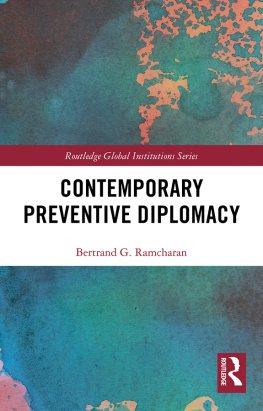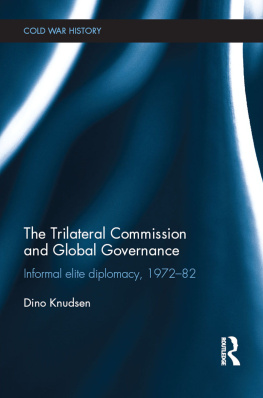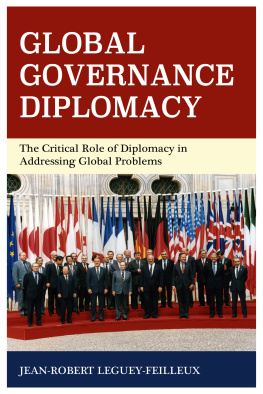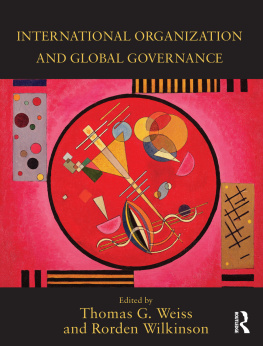Thomas Nowotny - Diplomacy and Global Governance: The Diplomatic Service in an Age of Worldwide Interdependence
Here you can read online Thomas Nowotny - Diplomacy and Global Governance: The Diplomatic Service in an Age of Worldwide Interdependence full text of the book (entire story) in english for free. Download pdf and epub, get meaning, cover and reviews about this ebook. year: 2011, publisher: Routledge, genre: Politics. Description of the work, (preface) as well as reviews are available. Best literature library LitArk.com created for fans of good reading and offers a wide selection of genres:
Romance novel
Science fiction
Adventure
Detective
Science
History
Home and family
Prose
Art
Politics
Computer
Non-fiction
Religion
Business
Children
Humor
Choose a favorite category and find really read worthwhile books. Enjoy immersion in the world of imagination, feel the emotions of the characters or learn something new for yourself, make an fascinating discovery.
- Book:Diplomacy and Global Governance: The Diplomatic Service in an Age of Worldwide Interdependence
- Author:
- Publisher:Routledge
- Genre:
- Year:2011
- Rating:5 / 5
- Favourites:Add to favourites
- Your mark:
- 100
- 1
- 2
- 3
- 4
- 5
Diplomacy and Global Governance: The Diplomatic Service in an Age of Worldwide Interdependence: summary, description and annotation
We offer to read an annotation, description, summary or preface (depends on what the author of the book "Diplomacy and Global Governance: The Diplomatic Service in an Age of Worldwide Interdependence" wrote himself). If you haven't found the necessary information about the book — write in the comments, we will try to find it.
Thomas Nowotny: author's other books
Who wrote Diplomacy and Global Governance: The Diplomatic Service in an Age of Worldwide Interdependence? Find out the surname, the name of the author of the book and a list of all author's works by series.
Diplomacy and Global Governance: The Diplomatic Service in an Age of Worldwide Interdependence — read online for free the complete book (whole text) full work
Below is the text of the book, divided by pages. System saving the place of the last page read, allows you to conveniently read the book "Diplomacy and Global Governance: The Diplomatic Service in an Age of Worldwide Interdependence" online for free, without having to search again every time where you left off. Put a bookmark, and you can go to the page where you finished reading at any time.
Font size:
Interval:
Bookmark:

Introduction
- - A population bomb would be about to explode, making for standing room only on the earth's surface and dragging us all down into misery.
- - We would soon, very soon run out of essential raw materials and thus soon witness a collapse of the world economy.
- - Anarchy would spread over the globe as gaps in wealth continue to widen and poorer states descend into chaos.
- - A sizeable part of humankind would perish after global warming, having overshot a tipping point, accelerates in an unbridled fashion.
Font size:
Interval:
Bookmark:
Similar books «Diplomacy and Global Governance: The Diplomatic Service in an Age of Worldwide Interdependence»
Look at similar books to Diplomacy and Global Governance: The Diplomatic Service in an Age of Worldwide Interdependence. We have selected literature similar in name and meaning in the hope of providing readers with more options to find new, interesting, not yet read works.
Discussion, reviews of the book Diplomacy and Global Governance: The Diplomatic Service in an Age of Worldwide Interdependence and just readers' own opinions. Leave your comments, write what you think about the work, its meaning or the main characters. Specify what exactly you liked and what you didn't like, and why you think so.

